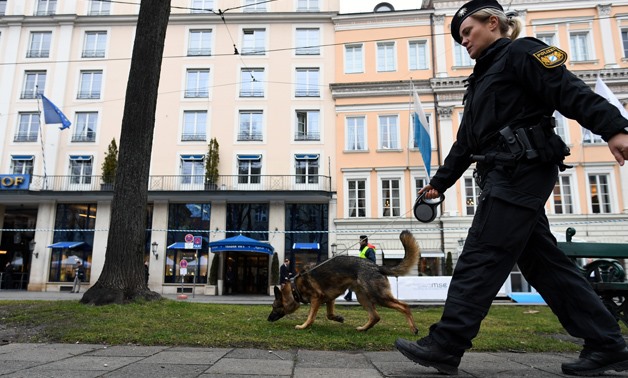
A police officer with a dog secures a street outside the venue of the annual Munich Security Conference in Munich, Germany February 14, 2020. REUTERS/ Andreas Gebert.
KUWAIT CITY/BERLIN- 14 February 2020: Kuwaiti Prime Minister Sheikh Sabah Al Khaled Al Hamad Al Sabah asserted the importance of his participation in the 56th session of the Munich Security Conference, which he said aims to boost efforts to protect international security and stability.
In statements broadcast by state news agency KUNA after his arrival in Munich, the Kuwaiti premier said his country's neutral political views under the leadership of Emir Sheikh Sabah Al Ahmad Al Jaber Al Sabah have helped it become a key partner in resolving international issues and fighting terrorism.
He also spoke of Kuwait's prominent humanitarian efforts to ease the suffering of those in need around the world, which were recognized by the UN, granting the Kuwaiti emir the "Humanitarian Leader" title.
Kuwait exerted great efforts to resolve regional and international issues during its non-permanent membership at the United Nations Security Council (UNSC) in 2018-2019, the Kuwaiti prime minister said.
The country also played a big role in international events, during its chairmanship of UNSC in February 2018 and June 2019, he added.
Meanwhile, Sheikh Sabah noted that the conference is a great opportunity for countries to share experience and views on tackling different challenges, especially in the Middle East region.
He said the conference is not only an event to discuss security issues, but also a platform to resolve regional conflicts and boost economic and commercial ties between participants.
The Munich Security Conference is slated for February 14-16. It would group 135 heads of State, governments, ministers of foreign and defense affairs in addition to prominent figures representing international and civil society organizations

Comments
Leave a Comment